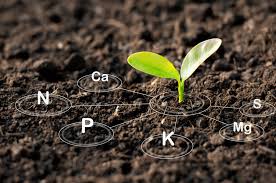A new report has shown that every year, the world loses billions of tonnes of topsoil to overgrazing, deforestation, pollution and other threats.
Experts are worried about the trend because soil supports the vast majority of the food humanity eats and is one of the most important warehouses of planet-warming carbon.
And, according to a recent study in the journal, Nature, it is home to nearly 60 per cent of all species.
Soil is a hot topic as countries gather in Riyadh, Saudi Arabia for the 16th Conference of the Parties (COP16) to the UN Convention to Combat Desertification (UNCCD). Negotiators are slated to discuss commitments that nations have made to stem the loss of soil and achieve land degradation neutrality by 2030, said a statement released by the United Nations Environment Programme (UNEP).
The Deputy Director of the Ecosystems Division at UNEP, Bruno Pozzi said: “Soil degradation impacts food security, water systems, biodiversity and climate resilience.”
He said by addressing the root causes of soil degradation, they can restore soil health and create a more sustainable future for hundreds of millions of people.
The experts listed reasons for the decline in soil health and proffered solution as well.
They listed drought, saying, as land degrades, soil loses its ability to retain water, leading to vegetation loss and creating a vicious cycle of drought and erosion. This issue, exacerbated by climate change, is particularly severe in sub-Saharan Africa, contributing to food insecurity and famine.
Their report however said through water management practices, such as drip irrigation and rainwater harvesting, and ecosystem restoration, communities can improve soil moisture and reduce the impact of drought.
Another reason why soil health declines is land degradation as human activity has altered more than 70 per cent of the earth’s land, causing widespread degradation of forests, wetlands, and grasslands to name a few of the ecosystems, which diminishes soil fertility, reduces crop yields and threatens food security.
“To combat this, practices like adding compost and organic materials to soil, improving irrigation techniques and using mulching to maintain moisture are essential. Restoring soil health through conservation agriculture also helps prevent further land degradation,” the report said.
Also, it said industrial farming produces large volumes of food, but it significantly harms soil health while the use of heavy machinery, tilling, monocropping, and excessive pesticide and fertilizer use degrades soil quality, pollutes water sources and contributes to biodiversity loss.
While noting that Industrial agriculture also accounts for about 22 per cent of global greenhouse gas emissions, the report said sustainable practices, such as zero-tillage, the reintroduction of animals into cropping systems, crop diversification and the incorporation of organic matter, can help preserve soil integrity and kick-start dormant soil biology.
It pointed out that chemicals and pollution from Industrial processes, mining, poor waste management and unsustainable farming practices introduce chemicals, like synthetic fertilizers, pesticides, and heavy metals into the soil.
“Excessive fertilizer use disrupts nutrient balance, while pesticides harm beneficial soil organisms, like earthworms and fungi. Heavy metals, like lead and mercury, accumulate in the soil, interfering with microbial activity and plant nutrient uptake. So, reducing pollution, minimizing chemical use and promoting organic farming can restore soil’s vitality,” it stated.
For diet and nutrition, which significantly affect soil health through the agricultural practices used to produce food, it said transitioning to diverse, plant-based diets can lessen the demand for intensive farming.
”By aligning dietary habits with sustainable agricultural practices, countries can enhance soil health and ensure long-term food security,” it further said.

 Join Daily Trust WhatsApp Community For Quick Access To News and Happenings Around You.
Join Daily Trust WhatsApp Community For Quick Access To News and Happenings Around You.


